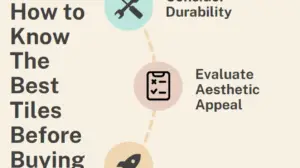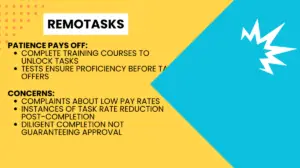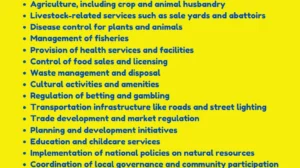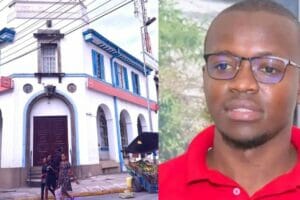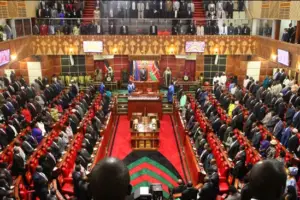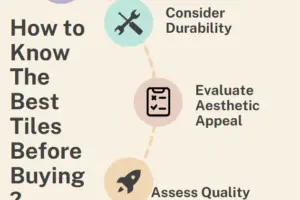
In an explosive article in February this year, this site revealed that the first exercise of collating Kenyan registration details known as National Digital Registry System (NDRS) was hijacked by special interests, particularly then Kenyatta family owned CBA bank. The data was matched by Safaricom’s millions and used to start M-Shwari loan product.
Well, when the Government of Kenya (GoK) led by a Kenyatta announced that they’ll be a new registration of Kenyan details, through the National Integrated Identity Management System (NIIMS) aka Huduma Namba, some people saw the fuss and called out banks and private interests such as Mastercard Foundation who are out to harvest Kenyan data and use it to improve their credit issuing businesses.
By the way, those guys were not wrong. The way National Digital Registry System (NDRS) was hijacked to create M-Shwari is the way Huduma Namba would’ve been hijacked.
Well, it’s now official that those who hijacked National Digital Registry System (NDRS) are the same people who have been fronting Huduma Namba. At the newly created Bank NCBA (NIC Bank + CBA + Jamii Bora), the Huduma Namba question is one of those one is required to open an account.

The budget for Huduma Namba was Ksh7.5 billion up from the original Ksh6 billion, the additional is said to be going to salaries for the added days that some clerks worked. This is according to the Interior Ministry.
The story we run in February
For the last decade, Kenyans have been promised the third-generation or digital ID, a polycarbonate sheet, laser-printed with solid colour images and etched holograms, containing, critically, a machine-readable chip and a full set of digital finger and iris biometrics.
Is Huduma Namba a reincarnation of National Digital Registry System (NDRS) — an ambitious plan for panoptic biometric registration that the Kenyan government announced in 2014, but that did not happen?
Keith Breckenridge in his August 2017 paper titled – The failure of the “single source of truth about Kenyans”: the National Digital Registry System, collateral mysteries and the Safaricom monopoly – argues that the failure of implementation of the system was in large part due to the usual “fractured interests” that hamstring our country but more specifically of a conflict between formal banks and SAFARICOM.

The Banks were interested in a new Government registration which would allow Citizens to utilize non-fixed assets (Motor Vehicle logbooks and livestock) as collateral for loans and advances.
Understand this, the Kenyattas have never been interested in resolving the chaos in the Nairobi Central Land registry at Ardhi House or the various Land registries around this god-forsaken country.
We can only assume that their reasoning is that by creating order in those registries may shine a spotlight on their family complicity in the screwing entire peoples off their land.
That is why they have continually installed clowns and court jesters to head the Lands ministry, who in turn have been complicit in further illegal excisions and double allocations of title deeds.
It is understandable that banks, whose core business is to lend, have burnt their fingers variously with title deeds and concluded that the sanctity of title in Kenya is not absolute.
Safaricom and its new-found lovers in the Kenyatta Government appeared to favor a system that offered unsecured, high-interest micro-loans that did not require collateral registers.
We all thought that we were on the right track during the 2009 National census when the questions asked and data being collected seemed to point to a collection model that would answer many questions and be useful in business decision making. There were questions on demographics (gender, age, school levels) and asset (vehicles, livestock, TV sets, Radios, electricity access, mobile phones etc).
We expected that the Kenya National Bureau of Statistics, domiciled in that weird looking HERUFI house, would be a one-stop shop to PURCHASE critical business decision making data.
However, and because our politicians are a cursed lot, there was a huge hue and cry over biometrics and voting systems in the run-up to the 2013 elections. Everyone thinks only in terms of scheming and rigging, and true to form, the IEBC at that time did not disappoint.

The tender awarded to Safran Morphos for the supply of KIEMS kits had so many issues on voting day that they all later ended up calling into question the validity of the entire Presidential election – all the way to the Supreme Court.
The entire Biometric registration system was supposed to get Kenya out of reliance of paper ballots, the use of which in Kenya elections led to the jailing of the Directors of British company Smith & Ousman while back here, their accomplices James Oswago, Trevy Oyombra and Hamida Ali continue to appear occasionally in court.
The hijacked deal
In early 2014, Kenya hired the services of expert Mwende Gatabaki (wife to top economist David Ndii) to head the collection and digitization process of all Kenyans, refugees and aliens, a process which was made more urgent by the 2013 Westgate attacks.
An IT prodigy, Mwende was headhunted from her position as advisor to VP of the African Development Bank, and based at the time in Tunis. As with everything to do with Uhuru Kenyatta, it normally starts with genuine good intentions before being over-run by sectarian and family interests.
As a rank outsider, she was perfect for the job and untainted by the push-pull between Safaricom et al on the one hand, and established banks on the other.

Her plan, to lay out a potentially revolutionary reorganization of the entire Kenyan state around a “single source of truth.” The new database would link together existing and new registries of population, land holdings, companies and moveable assets.
Kumbe… at the time she was applying her intellect to revolutionize Kenya, there were some entrenched parasites in the system who were scornfully asking each other in pubs, “huyu mama anajaribu kutuambia nini?”…
“In her presentation Gatabaki stressed that the project was based in the presidency, that it would revitalise the Kenyan bureaucracy, provide citizens with meaningful security, and allow those with moveable assets, like cattle, to leverage them financially by making them available as fungible collateral. She argued that the new database and registrations would be significantly cheaper than the cost of upgrading existing but separate projects of registration and identification underway in the separate departments. To do all of this required a break with the existing forms of paper registration and a new set of purely digital biometrics from every person in the country”.

To illustrate just how fucked-up our country is, Mwende was proposing a purely digital system driven by Biometrics. The next day the CEO of the ICT Authority announced spending of Ksh. 10 Billion on a new Government database which would output into a new ID Card…
Meanwhile, a briefcase Ukrainian company by the name EDAPS consortium had over the years been building a database (IPRS) that progressively linked with the main registries i.e. National Registration Bureau’s ID card database and the Ministry for Immigration & Registration of Persons (MIRP) passport and Aliens registries. In 2010 they began to incorporate new data from the birth and death registries managed by the Department of Civil Registration.

The following year, 2011, they built automated two-way links between the IPRS and the databases maintained by the two (newly established) credit reference bureaus (CRBs).
It was inside this system that Safaricom and their partner CBA would find the sorting data that enabled them to cross-reference with Safaricom’s existing gigantic database of millions of its Sim card and M-Pesa clients
Everybody agreed that Land is a dangerous basis for loan collateral and probably spurred on by American or European notion of creditworthiness, the concept of “reputational collateral”…and what had today evolved into a blacklist by CRBs if in default of mobile loans or advances for as little as Ksh. 200/-
It was very clear from the get-go that neither Safaricom nor its Banking partner CBA were interested in fixed asset collateral register through a central biometric register as proposed by Mwende Gatabaki in 2014.
They did not want to share their data with other parties as provided for in law but could use the CRBs to give information on defaulters on loans, who they had vetted for eligibility to these same loans using their own sim and m-pesa derived algorithms.
Over the years Safaricom has argued that its work with M-pesa was actually more like a financial institution and when the argument started gaining traction, Safaricom did 180-degree about-face and claimed they were not a financial institution, thus could not be regulated by the CBK.
Ultimately, the scheme mooted by Mwende Gatabaki collapsed because of the data and information systems controlled by the monopoly Safaricom, the explosive growth of the M-shwari mobile loans and, with the exit of Kibaki as President, the decline of political clout of other banks.
In their place, with Uhuru Kenyatta at the helm and his family now holding the reins of power, catapulted their CBA from a nondescript, specialized bank for corporates to one with over 8 million mobile loan accounts.
Breckenridge sums it this way in his paper, “The intimate partnership that Safaricom and the Commercial Bank of Africa – substantially owned by the Kenyatta family – have fashioned together in the development of the M-Shwari mobile loans amounts to the extraction of surplus on a national scale for the substantial benefit of one politically connected family”.
By 2016, M-shwariwas being used by 16 million adults with 64 million loan accounts transacting over Ksh. 140 Billion. 1 in 5 Kenyans are borrowing from M-Shwari in a single month…
When CBK capped interest rates at 4% on loans, CBA was able to argue that the 7.5% it charged was actually not interest and rather that it was an administrative charge.
So CBA gets away with charging cumulatively 140% per annum on a loan, almost at the same level as SHYLOCKS.
The trade-off for doing CBA getting all these crazy concession from Safaricom was that Nzioka Waita would move to State House to keep an eye on the oft-inebriated Uhuru to ensure their space remained unencroached upon.
Furthermore, Safaricom got huge infrastructure projects like CCTV Surveillance project, Treasury Bond issue to M-Pesa customers and the E-Citizenship project, all running into Billions of shillings.
And so, Kenya missed another massive opportunity to right our historical wrongs. Today, we continue to grapple with buffoonery at Lands, NTSA (did you see how they aided terrorists register motor vehicles) registration of births and deaths, Passport control and all those other registries that Mwende Gatabakis’ IPRS would have resolved conclusively and for eternity.
We instead got a system where you can qualify for a micro-loan via M-Shwari in minutes and in default, be assured of inability to ever borrow again.
That, ladies and gentlemen, is the definition of the term KAKISTOCRACY!
President Moi watched cold-heartedly as Kenyans died in misery as he fleeced the country’s finances, brutalizing those who opposed this luncacy and in the worst case, had them eliminated.
Today, God has gifted Mzee Moi long life, so that he can see for himself how his entire family has melted down and imploded internally.
Just last month, his grandson Collins took Fai Amarios daughter to a hotel in Kitale and after a quickie, the young man disappeared and left the girl with the bill.
All Moi’s kids except Gideon have collapsed under the weight of alcohol, drugs, HIV and social disorders.
Even Gideon, you can see how he voted like a lunatic in the Ruaraka Land saga Senate motion or how he would send a chopper from Kitale (at the Kittony farm) to Nairobi to get him 2 bottles of his choice alcohol…
That is the fate that awaits these fleecers-of-men, whose cold and hard hearts are warmed by the illusory power they wield currently.
They will get their comeuppance soon!
MORE:



